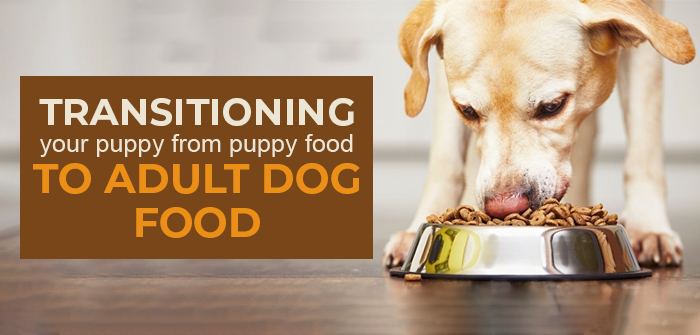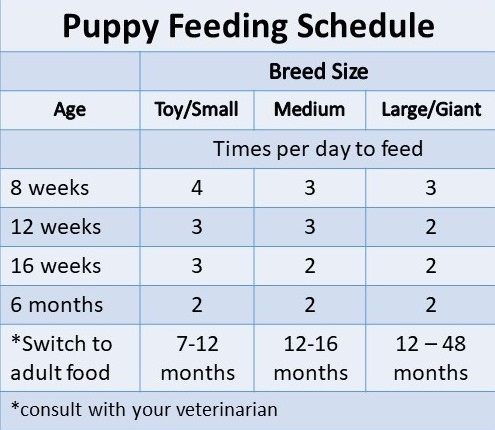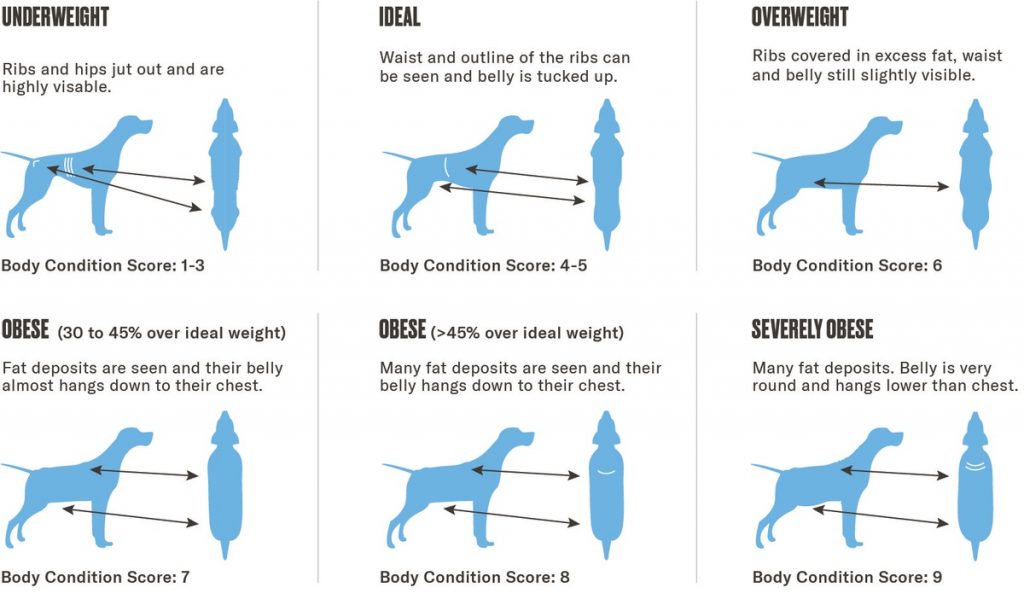Transitioning your Puppy from Puppy food to Adult dog food
Irrespective of age, all dogs deserve to be fed high-quality, nutritious food that nourishes their bodies from the inside. Dogs of all ages and sizes require a balanced diet that is composed of essential nutrients for optimal health and overall wellness, despite of breed.
The key difference between a puppy food and a dog food is a puppy’s food is based on growth enhancement, while a dog’s food focuses to maintain healthy weight.

General minimum diet requirements for healthy growth and maintenance in dogs set by experts are explained accordingly. A puppy requires a minimum of 22% protein and 8% fat for their growth and development, while an adult dog requires a minimum of 18% of protein and 5% fat in their diets.
Now let us understand if your puppy is ready to shift to adult food.
Is Your Puppy Ready for Adult Dog Food?
Puppies need higher levels of protein and fat to fuel their growth and development in addition to nutrients naturally found in a mother dog’s milk like the DHA. Foods that are specially formulated for puppies have high levels of calcium and phosphorus to support healthy bone-development.
When your puppy approaches adulthood or maturity, his growth slows down, and his diet needs to be adjusted to prevent overgrowth. Generally, protein-rich foods are better for both puppies and adult dogs. But some dog food brands go beyond the recommended minimums to provide dogs with an abundance of animal-based proteins that support lean muscle mass and healthy growth.
But the question is, how would you know when your puppy is ready for adult dog food?
In a broader sense, there are several factors you should keep in mind when you consider switching your puppy to adult dog food.
When to Transition from Puppy Food to Adult Dog Food
When your puppy reaches adult size and adult height, you can start the transition to adult food. Their breed type and body weight also helps determine when to switch. For example, small-breed dogs mature physically much sooner than large-breed dogs.
The following guidelines will help you decide when to switch formulas:
- Small-breed dogs that weigh 20 pounds or less are fully grown and are ready to eat adult food from 9 to 12 months of age.
- Medium-breed dogs that weigh between 20 and 50 pounds are adults, and they are mature for the transition at the age of 12 to 14 months.
- Large and giant-breed dogs that weigh more than 50 pounds are fully grown but might not be ready to switch to adult food until they reach the age of 18 to 24 months.
Feeding your little pup puppy food will ensure he gets the high protein and fat percentages needed to continue rapid growth. Small dogs burn calories at a higher rate than larger dogs; hence, on reaching the age of maturity, transitioning to adult dog food will provide your dog with the protein and calories needed to maintain healthy body weight.

How to Transition from Puppy Food to Adult Dog Food?
Gradually, make the transition from a puppy diet to an adult formula over 1 to 2 weeks by mixing the two foods in your dog’s bowl. Doing this will avoid upsetting your dog’s intestinal tract and diarrhea. Follow the guidelines as given below:
Day 1, 2, 3: Mix 75% puppy food with 25% adult food in a bowl.
Day 4, 5, 6: Fill your dog’s bowl with 50% adult food and 50% puppy food.
Day 7, 8, 9: A mixture of 75% adult food and 25% puppy food should be fed to your dog.
Day 10, 11, 12: Finally, switch to 100% adult food, and keep a watch on your dog for any adverse effects.
As you make the transition from puppy food to adult dog food, you will need to monitor your dog’s weight and body conditions. Using the above-mentioned, food-metrics as a guide, you can adjust your dog’s daily portions to support their metabolism and prevent obesity.
Why Should You Feed Your Dog Premium Food?
Quality is what counts, so feed your puppy a premium food that provides a balanced nutritional diet to your dog. Now let’s understand the food choice you should make when they grow into adult dogs.
Feeding your dog high-quality adult food will help them maintain the same high level of nutrition that they received as a puppy. In contrast, switching to a lower-quality brand at this stage of your dog’s life may not provide them with the same level of nutritional excellence they were raised with. Check out our Dog Food section to find out the quality premium food for your grown-up pups!
Premium adult dog food is exclusively formulated to nourish your dog with:
- A selection of high-quality ingredients to support their whole-body health.
- A balanced diet of protein, fiber, vitamins, carbohydrates, fat, and minerals.
- Fatty acids like Omega-6 help nurture and support your dog’s skin and coat.
A dog’s ideal body condition includes a visible waistline and a noticeable tuck where the abdomen slants upward from the ribcage to the hind legs. You should also be able to feel the ribs, pelvis, and backbone of your dog as they are covered with a thin layer of fat.

Your veterinarian can best advise you on the healthy weight range for your dog’s breed. If the weight scale moves in the upward-direction, the veterinarians recommend adjusting your dog’s food portion size accordingly. In a few cases, your vet may even recommend adopting a weight control formula.
Wrapping up
A healthy diet is vital for the overall growth of your dog, but it is just one aspect of optimal wellness for your pet. Daily exercise, training, socialization, mental enrichment and encouragement, adequate shelter or a place that is their own, like their own crate, and most importantly, your praise, protection, and love are also essential for your dog’s overall well-being. When all these needs are taken care of, you will enjoy your pet’s unconditional love for a lifetime.
And all this adds up to a happy and healthy dog.

